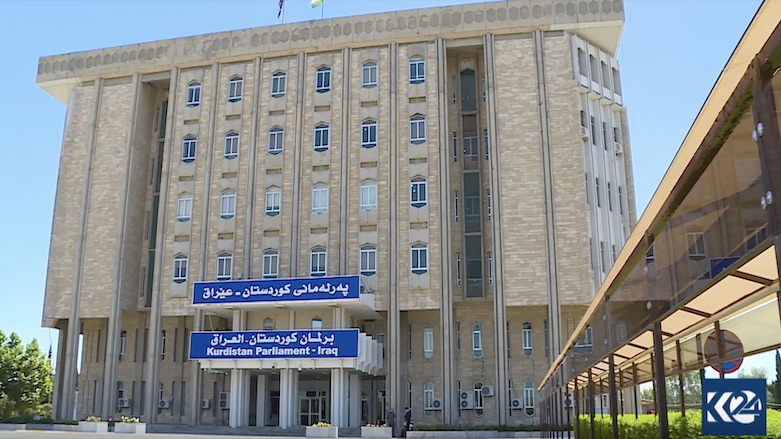Kurdistan Region Parliament to form new committee on disputed areas

ERBIL (Kurdistan 24) – Lawmakers in the Kurdistan Region Parliament are set to form a new committee that deals with the issue of contested areas between the Kurdistan Regional Government (KRG) and the Federal Government of Iraq, a member on the committee of disputed territories said on Monday.
Naser Ahmed, a member of the committee, said a delegation would visit the disputed areas that fall within Article 140 of the Iraqi Constitution to produce a law which compensates the diverse ethnicities who live in those regions.
“The committee will then visit Baghdad to re-direct the focus and attention on Article 140 of the Iraqi Constitution,” Ahmed told Kurdistan 24.
“The legislature aims to include the people in the disputed areas who suffered prosecution and ethnic-based malice since 1968, and to estimate their losses in an attempt to compensate them in the future,” he added.
According to Article 140 of the Iraqi Constitution, the fate of disputed territories between Erbil and Baghdad requires a referendum in the contested areas so people can decide whether they want to be governed by the KRG or the Iraqi government. However, no such referendum has taken place despite the deadline having expired over a decade ago.
Under the former Iraqi dictatorship regime, the disputed areas, notably Kirkuk, experienced a process of Arabization. Most of the disputed territories are inhabited by non-Arabs, including Kurds, Assyrians, Yezidis, Turkmen, and Shabaks.
In recent weeks, there have been complaints of an ongoing campaign of demographic change in Kirkuk province with Kurds forcibly removed from their homes and replaced with Arabs, a matter which is a direct violation of the Iraqi Constitution.
Related Article: Iraqi forces demolish homes of 4 Kurdish families in Kirkuk
Last week, around 200 Arab Sunni citizens reportedly arrived in Kirkuk’s Sargaran sub-district to settle and occupy properties using documents issued during the era of Iraq’s former dictatorship.
Mahyadin Hasan, a lawmaker in the Kurdistan Parliament, said the new committee would visit Baghdad to request the removal of the current head of the Iraqi council on disputed territories and ask for the assignment of a new leader “to monitor the implementation of the constitution.”
Hadi al-Ameri, the leader of the Iran-backed Fatah Coalition, is the current head of the Iraqi council on disputed territories.
“Ameri, who is also a member of the Council of Representatives, legally cannot hold both positions,” Hassan told Kurdistan 24. “He cannot be the head of the disputed territories committee and a member of the council of representatives.”
Editing by Karzan Sulaivany
(Additional reporting by Hoshman Sadiq)
